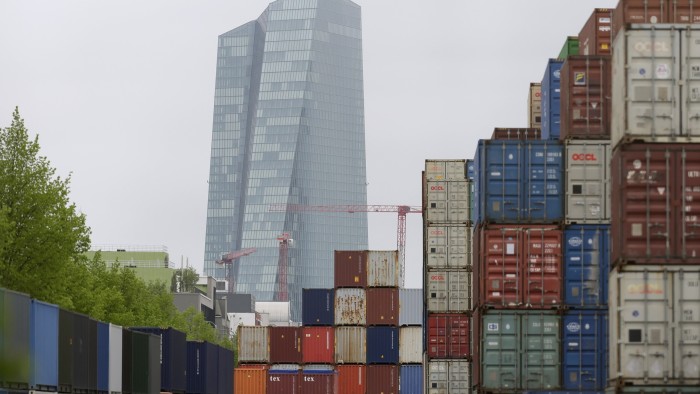Stay informed with free updates
Simply sign up to the Eurozone economy myFT Digest — delivered directly to your inbox.
The Eurozone economy grew 0.4 per cent in the first three months of the year, surpassing expectations, ahead of Donald Trump’s sweeping tariff announcements in early April.
The figure was higher than the 0.2 per cent recorded in the previous quarter, according to a flash estimate by Europe’s statistical office Eurostat. Economists polled by Reuters had predicted that GDP would hold steady at that level.
Most analysts expect that the global trade war unleashed by the US president on “liberation day” on April 2 will damage the Eurozone’s subsequent economic performance.
Survey data in recent weeks showed that business confidence in the Eurozone had deteriorated significantly since the US president unveiled the duties, while growth has approached zero.
The euro was little changed after data release at $1.137.
Carsten Brzeski, global head of macro at ING, warned in a note to clients on Tuesday that despite the partial suspension of Trump’s tariff announcements and exemptions for some goods, “applied tariffs are still higher than at the start of the year”.
Brzeski added that “the threat of more to come is still hanging over the global economy”, and that lingering uncertainty would be “another dampening factor for economic activity in the Eurozone”.
The European Central Bank had already in March lowered its growth prediction for 2025 for the sixth consecutive time to 0.9 per cent, and is expected to lower it further in its updated forecasts in June.
The central bank warned that the outlook for growth had “deteriorated owing to rising trade tensions” when it cut interest rates in April for the seventh time since June to 2.25 per cent.
Figures released earlier on Wednesday showed that the German economy grew by 0.2 per cent in the first quarter compared to the previous three-month period, in line with expectations.
Europe’s largest economy had contracted by 0.2 per cent in the final quarter of 2024.
France’s economy barely grew in the first quarter, rising by 0.1 per cent, having contracted by 0.1 per cent in the final three months of 2024.
This is a developing story


